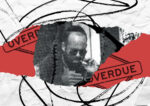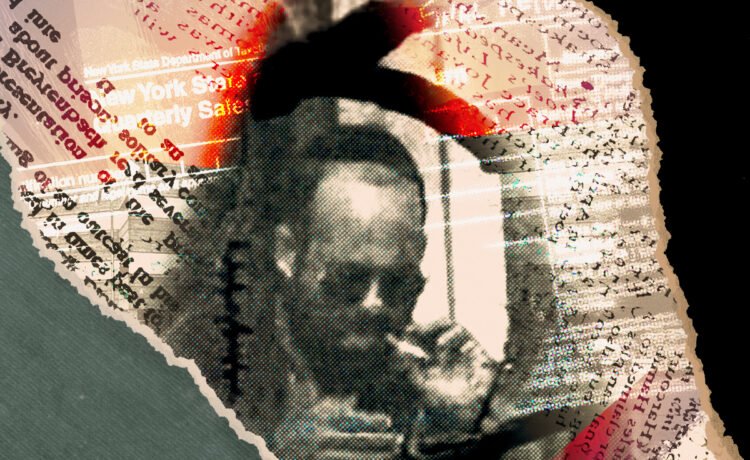Boruch Drillman on Monday was sentenced to five years of probation for his role in a $165 million mortgage fraud scheme.
U.S. District Court Judge Robert Kirsch cited Drillman’s early cooperation with investigators, his genuine remorse, the fact he considered Drillman to be less culpable than other defendants in the case and Drillman’s poor health as reasons for downgrading the sentence.
The charge originally carried a maximum five-year prison sentence. Drillman was also fined $250,000, and he will need to abide by special conditions, including submitting to alcohol and drug tests, as well as certain business and financial disclosures
Drillman, 38, and his co-conspirators were accused of providing lenders with bogus sales prices for a property in Troy, Michigan, and another in Cincinnati, Ohio, to secure larger loans than they would have otherwise received.
Before his sentencing, Drillman apologized to his family, to investigators and to the financial institutions harmed in the case, including JPMorgan, JLL and Fannie Mae. He became increasingly emotional.
“There are no words sufficient to express how sorry I am,” he said, speaking to his family in the court. “Your love is the only thing that kept me from losing hope.”
His voice broke as he spoke about his religion.
“I tarnished the Jewish people, and I failed to live by my values that I claim to hold so dear,” he said. “I pledge to live a life that brings healing instead of harm.”
After he finished speaking, he lifted his glasses to dab his eyes with a tissue.
The charge against Drillman stems from two deals. In one case, Drillman, along with Moshe Silber and Fred Schulman, purchased an apartment complex in Cincinnati, known as the Williamsburg of Cincinnati, for $70 million in 2019. They then used a stolen identity to present a lender and Fannie Mae with a fraudulent sales contract, showing the sales price to be more than $95 million, according to prosecutors. They then held two closings, one for the real price and one for the inflated one. The fake sales price allowed the trio to secure a $74 million loan.
The other fraudulent flip involved Troy Technology Park, an office complex in Troy, Michigan. Drillman, Aron Puretz and his son, Eli Puretz, acquired the property for $42.7 million in 2020. They provided the lender, JP Morgan, with a $70 million price tag, which was used to obtain a larger loan of $45 million. A Lakewood, New Jersey-based title insurer, Riverside Abstract, handled closings for both the real price of the property and the inflated one.
Drillman was the last to be sentenced in this scheme. Kirsch gave the maximum to co-conspirator Aron Puretz, but was more lenient with Eli Puretz, who was sentenced to 24 months in prison. He gave Silber 30 months and Schulman one year.
During Monday’s hearing, Kirsch repeatedly said that he considered the elder Puretz the most culpable in the scheme.
Though the last to be sentenced, Drillman was the first to plead guilty. He pleaded guilty in 2023 to one count of conspiracy to commit wire fraud affecting a financial institution.
On Monday, Assistant U.S. Attorney Martha Nye asked for a reduced sentencing range, acknowledging that Drillman provided “robust, helpful and timely” assistance that helped unravel the scheme and led to charges against the four co-conspirators. In fact, an investigator on the case, Lars Hansen, shook Drillman’s hand before the hearing.
Nye did, however, urge the judge to still hand down a sentence that would deter others from replicating the scheme, saying that “there are other people out there committing this kind of fraud,” and that such schemes have far-reaching “tentacles.”
At this, the judge alluded to the four other co-defendents, who are either in prison or on their way, and wondered whether those punishments alone would serve as a deterrent for other fraudsters. The judge ultimately granted Drillman a variance that allowed an even more lenient sentencing than requested by the government.
As described by his attorney, Jeffrey Lichtman, Drillman was in his mid 20s when he was recruited by Aron Puretz to be a straw man in the Cincinnati deal. He said Drillman was vulnerable, someone who had dropped out of Yeshiva and been involuntarily committed for what would later be diagnosed as bipolar disorder.
Lichtman also noted that Drillman was not as sophisticated in financial transactions as his co-conspirators.
“This isn’t any kind of excuse for him,” Lichtman said. “He was certainly a very willing dupe.”
“He allowed himself to be used by the Puretzes,” he added.
Lichtman said Drillman took orders from the Puretzes. He eventually become nervous that he would be blamed for the Troy scheme. To protect himself, he asked Eli Puretz to describe, on a recording, each of their respective roles in the deal as insurance if investigators began poking around. He didn’t want to be left holding the bag.
In 2023, Drillman felt investigators were getting closer to him and instructed Lichtman to send the recording to investigators, without first securing a deal. The attorney thought his client was crazy.
“In 35 years, I’ve never seen it happen where somebody’s turned over such a crucial piece of evidence that caused four guilty pleas, and we expected nothing,” Lichtman said after the sentencing. “We have no cooperation [agreement] with the government.”
Lichtman also said Eli Puretz told members of the Lakewood, New Jersey, Orthodox Jewish community that Drillman was working with investigators.
“He was vilified in this tight-knit community,” he said.
An attorney for Eli Puretz declined to comment.
Kirsch didn’t buy that Drillman was unwittingly roped into committing fraud.
“Nobody can characterize Mr. Drillman as some unknowing sheep that was lured into these misdeeds,” the judge said, noting that those who wrote letters in support of Drillman ahead of the sentencing repeatedly described him as brilliant.
However, the judge considered the fact that Drillman provided information on the fraud without being solicited.
“The government requires cooperators,” he said. “It is a necessity in ferreting out concealed, sophisticated fraud such as this.”
He said he believed that Drillman’s remorseful comments were genuine and underscored that he was ashamed of his actions.
Ahead of sentencing, Kirsch also considered Drillman’s significant mental and physical health issues, pointing to a recent “near-death experience” where he was hospitalized for diabetic ketoacidosis.
During sentencing hearings for the defendants in the other mortgage fraud cases, Kirsch has often talked about both the immense support within the Orthodox Jewish community, and how its insularity can work against individuals in crisis. The judge said much “is laudable and enviable,” about the community, pointing to how members can rally around those struggling with addiction or financial trouble.
“In contrast, when individuals actually come clean about their misdeeds, out loud, a very different backlash is visited upon them,” he said.
The judge hammered this point home by asking those seated in the courtroom to stand up if they attended the hearing to support Drillman. He counted 15 (a TRD reporter in the audience counted at least 18), and noted that the sentencings for the other four defendants was “standing room only” in the courtroom, full of members of the Orthodox community, including several rabbis, seen praying in the seats. Monday’s hearing was sparsely attended, with nearly entire rows sitting empty.
Kirsch noted that Drillman moved to South Florida largely in reaction to the backlash, leaving behind his eight siblings and parents, most of whom live in New York and New Jersey. The judge said Drillman’s family was also affected by the community’s negative reaction. After the judge’s ruling, friends and family members could be seen grabbing each others’ arms and hugging.
Drillman declined to comment after the sentencing, instead directing questions to his attorney.
He has faced other legal issues. In Miami, he was hit with a $2.1 million judgement for allegedly failing to pay a $1.5 million loan to investor Arie Harel. The board of his Bal Harbor condominium also tried to evict him for chain-smoking cigarettes.
The case against Drillman and the others was part of a broader crackdown against commercial mortgage fraud by the Department of Justice and the Federal Housing Finance Agency. Other schemes played out in a similar fashion: Owners “flipped” a property to an entity they controlled or to a co-conspirator, at an inflated price in order to get a larger loan. The arrangement hides how much money the buyers actually have on hand, and allows them to acquire properties while investing little to no equity. It is unclear how many such cases will ultimately emerge, or how far the “tentacles” of such fraud reach.
This story has been updated with additional context from Monday’s hearing.
Read more

Judge sentences Eli Puretz to 24 months in prison for massive mortgage scheme

More trouble for Boruch Drillman

Boruch Drillman faces eviction for chain smoking








Recent Comments